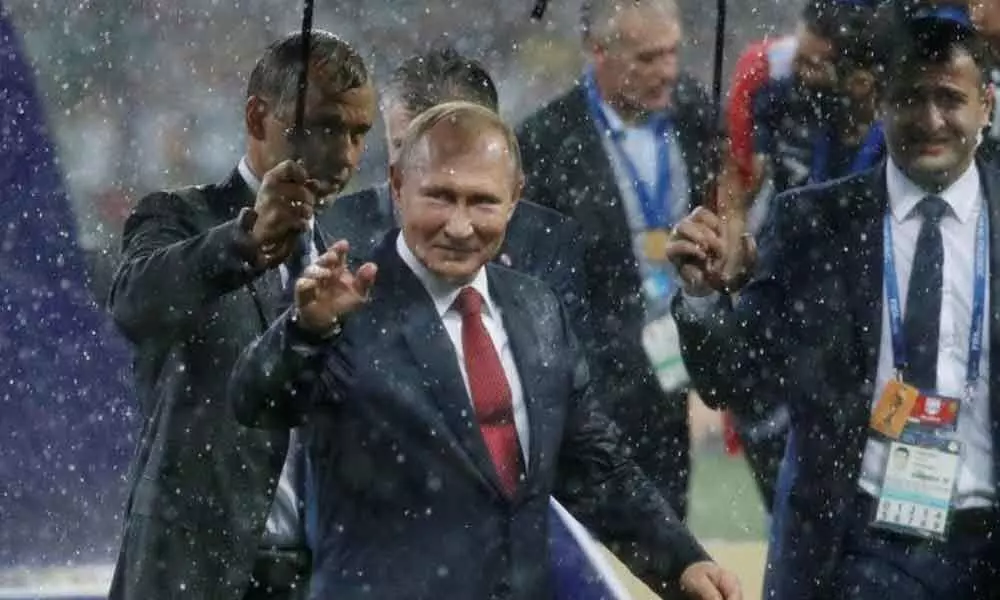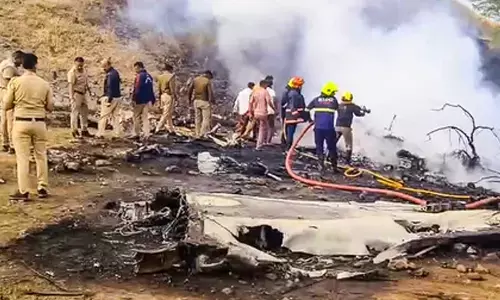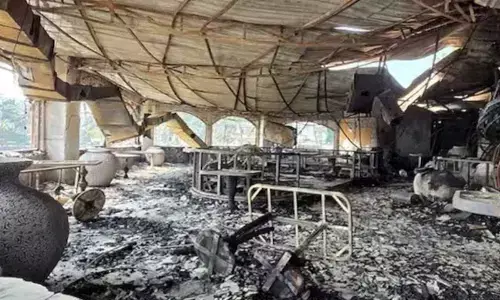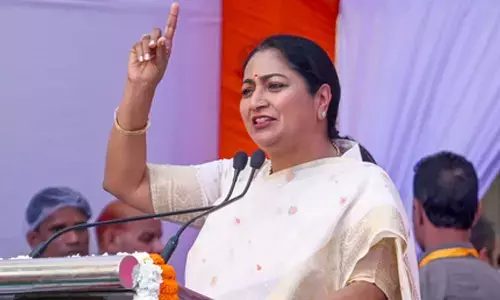Putin's moves leave Russian Opposition with few options

Russian President Vladimir Putin played it differently this time.
Moscow : Russian President Vladimir Putin played it differently this time.
Instead of openly declaring plans to extend his rule like he did in 2011, Putin proposed constitutional amendments to appear to give more power to Russia's parliament.
Instead of announcing the move as a fait accompli, he said the people should vote and decide. And then he executed a swift, unexpected reshuffle of Russia's leadership, putting a low-profile official with no political aims in charge of the government.
Putin announced what many see as a strategy for staying in power well past the end of his term in 2024. And the proposed constitutional reforms that might allow him to remain in charge as prime minister or as head of the State Council didn't elicit much public outrage.
Neither did the resignation of Dmitry Medvedev, Russia's prime minister, whom Putin quickly replaced with the little-known tax chief, Mikhail Mishustin.
There was a smattering of calls for protest: One opposition supporter urged people to join his one-man picket in front of the Presidential Administration on Saturday, while another called for protesters to turn out against the "constitutional coup" at a Sunday rally in honor of two slain activists.
It was very different from what happened in 2011-2012, when efforts to engineer Putin's return to the presidency crushed Russian hopes for liberalization and sparked massive protests in Moscow.
In his speech Wednesday, Putin presented his plan to amend the constitution as a way to improve democracy. By suggesting that lawmakers could name prime ministers and Cabinet members, he also curtailed the authority of the president, who currently holds that power.
Putin also said the constitution could specify a greater role for the State Council, an obscure consultative body of regional governors and federal officials, indicating that he might take a leading position there.
He also sought to prioritize the primacy of Russian laws, so that the European Court of Human Rights would no longer have the authority to issue rulings that Moscow opposed.
All this would "strengthen the role of civil society, political parties and regions in making key decisions about the development of our state," Putin said Thursday in discussing the amendments with lawmakers.
New Prime Minister Mishustin was praised by government officials and commentators as an "effective manager" with expertise in finance who would be able to drive Russia's stagnating economy out of a slump.
Many Russians might see that as a positive change rather than a sophisticated political plot. According to a survey released Friday by Russia's state-funded pollster VTsIOM, 45% of the respondents saw the shakeup as Putin's genuine desire to change the existing power structure.
But opposition leaders like Alexei Navalny said the changes are not the kind that people are looking for. Putin is looking to "remain a lifelong, ultimate leader" and run Russia as "property" divided between himself and his backers, Navalny tweeted. And the announced changes do nothing to address what Russians really want, said Navalny ally Lyubov Sobol.
"People demand to end corruption, people demand to improve their living conditions. They demand a reform of the health care system, they're worried about pension reform.
All these demands, they are not going anywhere," Sobol told The Associated Press. Vladimir Milov, an opposition politician, echoed that sentiment.
Russians are willing to put up with worsened living conditions if they see potential for growth in the future — but Putin's address shows he's not interested in that, he said. "This is the main conflict between Putin and society right now," Milov said.
"Society can't wait for economic growth to start again, and Putin doesn't care, he's occupied with other things. At some point, this will backfire." Still, the announced constitutional reforms are unlikely to trigger a new wave of protests.
"All recent protests happened when discontent that has been building up for a while spilled out, triggered by something. Amending the constitution is unlikely to be a trigger," Milov said. Denis Volkov, a sociologist with the independent Levada polling center, said the government shakeup is so vague it is unlikely to spur public anger.
"What is happening is not clear. Is this about a presidency? About some other governing body? It is unclear what people should express their unhappiness about," Volkov said.
"It is hard to protest against something that's unclear." In addition, Volkov noted, back in 2011-2012 Putin's approval ratings were much lower — more than half of the country wanted him out.
"Right now there is no urge to replace the country's leader," he said. And the question remains whether the opposition will be able to galvanize people to protest.
The Kremlin last year turned up the pressure on activists and politicians, sandbagging them with high-figure fines and exhausting them with arrests and trials.
There are several criminal cases open against Sobol and other Navalny allies. Sobol said she owes the government more than $400,000 in fines, and expects more fines to be imposed on opposition figures.




